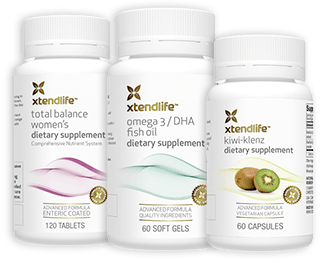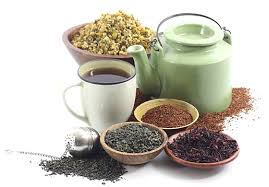A Closer Look at 6 "Miracle" Weight Loss Herbs
There are hundreds of natural weight loss herbs on the market. The popularity of these supplements rises and falls over time similar to the popularity of fad diets. Often the claims made by the manufacturers are over-stated and sometimes the hyped ingredient is missing or present in such a small amount that it could not possibly be effective.
Herbs can be effective weight loss aids. They may work as appetite suppressants or metabolism boosters. Some have scientifically proven benefits for promoting fat loss. Others promote a sense of satiety, fullness or satisfaction. Other benefits have also been noted.
If you are trying to lose weight, the information here will help you compare herbal ingredients to choose a product that is effective and safe.
1. Hoodia Gordonii
Hoodia gordonii is a cactus native to Africa. The meat of the cactus was eaten by hunters to suppress their appetites during long trips in the desert. Scientists first became interested in the appetite-suppressing qualities of the plant prior to 1977. The active compound named P57 was identified and isolated in that year and was patented in 1996.
At first, there was a great deal of interest in P57 among pharmaceutical companies. Phytopharm and Pfizer entered into an agreement in the late 1990s. The companies hoped to be able to synthesize P57, making it readily available for use as an anti-obesity drug.
Using the naturally occurring molecule was a problem for several reasons, not the least of which is that hoodia gordonii is an endangered species. Some efforts were made to cultivate the cactus but the current legal status is that the cactus can only be harvested in the wild by native tribes-people.
Pfizer finally gave up on their efforts to synthesize P57 in 2002. The lead Pfizer researcher stated, “Clearly hoodia has a long way to go before it can earn approval from the FDA. Until safer formulations are developed, dieters should be wary of using it.”
Despite all of this, there are still dozens of hoodia supplements on the market. Several supplement manufacturers have been sued over the years when scientific analyses proved that their product did not actually contain hoodia gordonii. There are many species of hoodia. Only hoodia gordonii has been evaluated for its appetite suppressing qualities.
The supplements that did contain a small amount of the hoodia gordonii extract did not contain a measurable amount of the active component P57. Animal studies have shown that the dosage of P57 required to suppress the appetite would be very large, possibly too large for it to even be possible to use the compound in a supplement.
If there are still genuine hoodia gordonii supplements on the market, the manufacturer will have a CITES certificate and a USDA permit, as well as a published report from an independent lab verifying the formula. Because there were so many complaints, the American Herbal Products Association established standards for authenticating hoodia gordonii products in 2009.
If the supplement manufacturer has no independent information verifying the contents of the product, don’t buy it. It’s a waste of money. What’s worse is that the supplement may contain other ingredients that could damage your health.
2. Acai Berry
Acai is simply an expensive, unproven supplement. At this time, there is really not enough information to recommend it or discourage people from taking it. There is some concern that many of the supplements do not actually contain acai berries because they are perishable and not available in large quantities.
Generally speaking, berries are good for you. They contain unique antioxidants that help to prevent free radical damage. Replacing some of the higher calorie, less nourishing foods in your diets with berries of any kind could help you lose weight. But acai is not the miracle weight loss aid that manufacturers make it out to be.
U.S. citizens are warned not to drink raw acai juice. The juice may contain parasites and has been linked to outbreaks of Chagas disease, a tropical parasitic disease that can cause chronic life-threating health problems.
3. Mangosteen Extract
Mangosteen supplements first became popular in the early 2000s when researchers identified unique compounds within the fruits called xanthones. Xanthones have natural antioxidant and anti-inflammatory properties according to researchers. So of course, the fruit became a target for the supplement industry.
Research has continued over the years. Some studies indicate that mangosteen extract can help people lose weight. In 2013, the Department of Nutrition at the University of California published the results of a clinical trial in which participants ate 2000 calories per day, walked for 30 minutes, 5 days a week and took an herbal blend containing mangosteen and Sphaeranthus indicus, an herb with a number of pharmaceutical properties.
The weight loss of the group taking the supplement was compared to that of a group who consumed the same amount of calories and got the same amount of exercise but took a placebo instead of the active supplement. The researcher’s conclusion: “Supplementation with the herbal blend resulted in a greater degree of weight loss than placebo over 8 weeks.”
4. Garcinia Cambogia
Heavily promoted in television ads and on the internet, garcinia cambogia is a fruit that looks something like a miniature pumpkin that is yellow, green or reddish in color. Some of the common names include brindle berry, Assam fruit and pot tamarind. The plant is native to Southeast Asia, India and parts of Africa where it has been used as a food, primarily in sour curry dishes, and also a laxative.
Garcinia cambogia has been an ingredient in some weight loss aids for many years. It gained a lot of attention recently when the popular TV personality Dr. Oz referred to it as a “magic” weight loss aid. But what do the scientists have to say?
The active component of garcinia cambogia is believed to be HCA (hydroxycitric acid). In animal studies, HCA has been shown to reduce fat storage. Relatively high doses were needed to achieve the results. At this time, some scientists are warning that there is not enough data to determine whether or not HCA derived from garcinia cambogia is safe enough for long-term use. Other scientists disagree. One study showed that the supplement had no effect when participants ate as they normally would. In other words, it’s not really a magic pill. A person who does not change their diet and exercise habits is not likely to see results.
A systematic review of clinical trials in which plants were used as appetite suppressants was conducted in August 2013. The results, according to the researchers, were “mostly inconclusive”. There were only two supplements with clinically proven benefits. One contained caralluma fimbriata, a natural product described below. One contained garcinia cambogia and another herb called gymnema sylvestre, which is also described below.
5. Caralluma Fimbriata
Caralluma Fibriata has a long history of use among tribes-people in India to suppress hunger and appetite while boosting stamina. It is an active ingredient in the Slimaluma supplements that have been advertised heavily on TV. Slimaluma also contains green tea and yerba mate. One variety contains chromium, a nutrient that seems to be beneficial for people with type II diabetes.
Recent studies have shown that caralluma fimbriata is non-toxic and causes no adverse side effects. Positive results were seen in one recently conducted clinical study. Volunteers in the study were obese people between the ages of 29 and 59. The study looked primarily at waist circumference. Having a large waist circumference is a risk factor for type II diabetes, heart disease and other health problems.
All of the study participants followed a healthy diet and exercise program. Only half of the study participants took the caralluma fimbriata supplement. The two groups basically consumed the same number of calories and did the same amount of exercise. In both groups there was a reduction in waist circumference after 9 weeks. The average loss for the group that did not take the supplement was just over an inch. The average loss for the group that did take the supplement was over 2 inches, more than twice as much!
As yet, the active component of caralluma fimbriata has not been identified. But the extract seems to work. In addition to suppressing appetite, scientists say the extract works to prevent the accumulation of fat in the arteries that leads to heart disease, another positive benefit.
6. Gymnema Sylvestre
Gymnema Sylvestre is a medicinal herb with a wide range of potential health benefits. It can be found in single ingredient supplements and also in combination products, such as the one mentioned above that contains garcinia cambogia.
Over the years, hundreds of scientific studies have been done concerning the pharmaceutical activities of gymnema sylvestre. It is one of the most-studied of all weight loss herbs. Benefits have been seen in the treatment of diabetes, asthma, heart disease and inflammatory conditions. Scientists have found it is a digestive aid, an antioxidant and an antimicrobial. It may also be beneficial for lowering blood lipids and cholesterol levels.
One study focused on weight loss, blood lipids, leptin levels and other markers indicating a loss of body fat. The caloric intake of the study group was restricted but it was not a very low calorie diet. Participants consumed 2000 calories a day and exercised by walking. The participants were divided into three groups. One group was given only HCA, the active component of garcinia cambogia. One group received HCA and gymnema sylvestre. One group received a placebo, not an active supplement.
The average weight loss in the group that received the placebo was described as “non-significant” after 8 weeks. In the other two groups, there was a 5-6% decrease in weight and BMI. Total cholesterol, blood lipid levels and leptin levels were lower. For a person weighing 200 pounds, a 6% decrease in weight is equivalent to 12 pounds. That’s a pound and a half per week!
So what's the bottom line?
As you can gather from the information above, there is really no such thing as a "miracle" weight loss herb. Some of them have not been shown to have any effect; others may have a positive effect but the supplements just don't contain enough of the active ingredient to promote weight loss; still others may actually work as long as you watch what you are eating and exercise regularly while taking them.
So losing weight is not about just taking the latest pill and sitting around on the couch waiting for the pounds to disappear. It's about changing your lifestyle, eating well, exercising and, if you need a little extra help, finding a high quality herbal supplement that actually contains the ingredient it claims to!
Related Articles:
Five Powerful Weight Loss Herbs
The Dangers of Losing Weight Too Fast
Read more on our weight loss page or return to the HSG home
Resources...
Search our site...
PREMIUM SUPPLEMENTS
The most advanced herbal supplements on the market
BULK HERBS AND TEAS
Need bulk herbs, teas, supplements and capsules?


